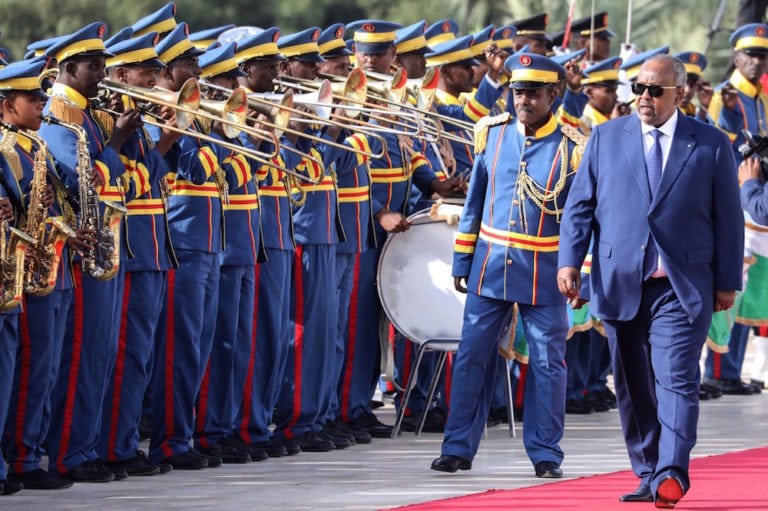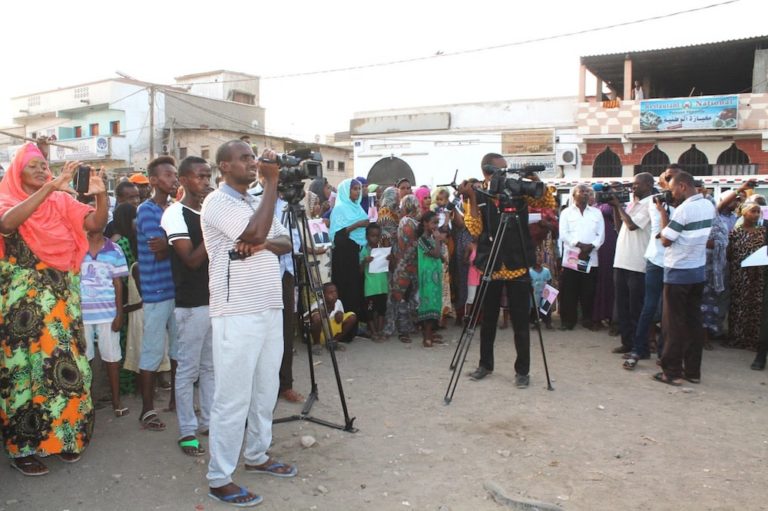Mendez was urged to intervene on behalf of radio journalist Farah Abadid Hildid, who works for the Europe-based station La Voix de Djibouti.
(RSF/IFEX) – 21 March 2012 – Reporters Without Borders wrote today to the U.N. Special Rapporteur on torture, Juan E. Mendez, to inform him of its deep concern about the persecution of journalists in Djibouti.
The press freedom organization asked the U.N. official to intervene urgently on behalf of radio journalist Farah Abadid Hildid, who works for the Europe-based station “La Voix de Djibouti”. The station broadcasted on short wave and is now available on the Internet, although access to its website is blocked in Djibouti.
Hildid, who has been an object of attention for the authorities and the intelligence services, was prosecuted for “participating in an insurrectional movement” and spent four months in Gabode prison between February and June 2011. He was detained again for four days last November and then abducted and held for 24 hours in early February. Each time he was subjected to physical and psychological abuse.
“We request your urgent intervention on behalf of Farah Abadid Hildid,” Reporters Without Borders wrote.
“The agents responsible for his torture must be brought before the courts. The proceedings undertaken against him must be dropped. The arbitrary arrests and the intimidation and violence to which he has been subjected must stop in order to safeguard his physical and mental well being.
“These acts of torture are particularly serious since they are aimed at silencing this journalist and human rights activist.
At the most recent torture session, he was reprimanded for articles he had written criticizing the security services and he was asked to supply the names of his colleagues.
“We hope you will do all that you can to help bring an end to these abuses.”
The letter was accompanied by a file containing full details of the torture to which the journalist was subjected.
Djibouti is ranked 159 out of 179 countries in the 2011-2012 world press freedom index published by Reporters Without Borders, a drop of 49 places compared with the previous year. Its leader, President Ismail Omar Guelleh, was re-elected in April last year in a ballot that was a foregone conclusion, with the opposition denied access to the media.


